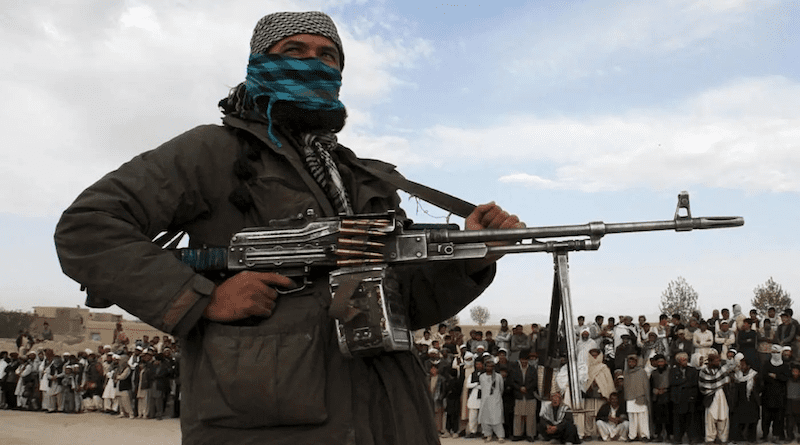Pashtun Society And The Plague Of Terror: Unmasking The Tehrik-I-Taliban Pakistan – OpEd
By Shehla Rahim
The Tehrik-i-Taliban Pakistan (TTP) has notoriously established itself as a brutal militant group, often associating itself with the Pashtun community, purportedly advocating for Pashtun interests. In reality, however, the TTP’s actions have been far from representing the Pashtun society or upholding its values. The group, through employing violence and manipulation, has exploited the Pashtun society, recruiting local criminals to execute its vicious activities.
This misrepresented association has tarnished the reputation of the Pashtun community and misled many into believing that the TTP genuinely serves their welfare. Tragically, the TTP’s actions have devastated the Pashtun society by inciting fear and chaos through heinous crimes, targeting civilians, disrupting cultural gatherings, and fracturing the traditional tribal fabric.
The impact of TTP’s actions on the Pashtun community has been profoundly distressing. The violence and carnage inflicted by the TTP upon innocent Pashtun civilians have caused a pervasive atmosphere of fear and uncertainty. The TTP’s callous attacks, particularly exemplified by the brutal killings in places like schools and markets, have deeply scarred the Pashtun society. The group has disrupted crucial cultural events and gatherings, causing instability and cultural erosion. The APS massacre in Peshawar stands as a harrowing testament to the TTP’s brutal actions. This catastrophic event led to the tragic loss of innocent lives, plunging the Pashtun community into widespread fear and trauma. The resultant distress and instability have eroded the cultural heritage and fabric that has been central to Pashtun society for generations.
A disconcerting aspect of the TTP’s emergence has been the transformation of previously obscure individuals into leaders of the terror group. Figures like Fazlullah, Mangal Bagh, Baitullah Mehsud, and Hakeemullah, among others, leveraged the tumult and opportunities provided by the TTP to ascend to leadership roles from relative obscurity. These individuals, lacking formal religious qualifications or traditional Pashtun societal status, imposed their authority, disrupting the conventional tribal structure. By employing fear and influence, the TTP altered the social order and imposed rogue elements, superseding traditional tribal leadership, causing a significant rift in the conventional societal structure.
The TTP’s methods, such as kidnappings, abductions, and coercion, have inflicted profound hardship and fear upon the Pashtun society. Its engagement in illegal activities, including drug trafficking, has destabilized the community and contradicted ethical and cultural values. The TTP’s actions perpetuate fear and instability, posing a significant threat to the socio-economic stability of Pashtun society.
The Tehrik-i-Taliban Pakistan’s actions flagrantly oppose Islamic and Pashtun values. Their atrocities and violence are contrary to the peaceful teachings of Islam and Pashtunwali, the traditional code of conduct. This disregard for human life and ethical principles is condemned by both religious and traditional Pashtun communities. The TTP’s pursuits seek to amass power and wealth through destruction, challenging the safety and progress of Pashtun communities.
Despite the challenges posed by the TTP, the unity and resilience of the Pashtun society, in alliance with the Government of Pakistan and law enforcement agencies, have stood resolutely against the threat of terrorism. This collective commitment and collaboration aim to counteract the TTP’s actions and restore peace, indicating the unwavering resolve of Pashtun communities to safeguard peace, moral values, and combat the disruptive activities of groups like the TTP. Through a concerted and dedicated approach, the Pashtun society, supported by the government and security agencies, perseveres to mitigate the adverse effects of terrorist activities, striving to re-establish peace, stability, and progress in the region.
In conclusion, the Tehrik-i-Taliban Pakistan’s distorted association with the Pashtun community has sown havoc, fear, and instability. Its actions have severely impacted the social, cultural, and economic fabric of the Pashtun society. However, the resilience and unity of the Pashtun people, together with the unwavering support of the government and security forces, promise the eventual restoration of peace and stability in the region. The continued collective efforts and perseverance reflect a commitment to preserve cultural and traditional values while combatting the disruptive elements that seek to undermine the essence of the Pashtun community.

